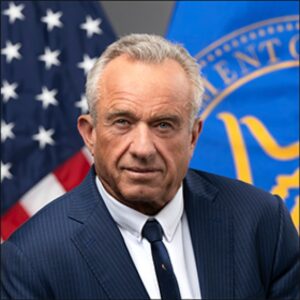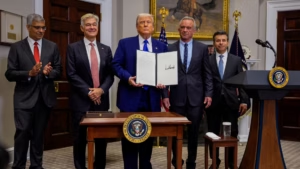Secretary Robert F. Kennedy Jr. aims to implement a nationwide ban on pharmaceutical advertisements on television. This pivotal move stands to align the U.S. with other countries that restrict such ads and addresses concerns over the influence of Big Pharma on public health and media reporting.
Pharmaceutical Ad Ban Proposal: A Transformative Leap for U.S. Public Health Reform

Pharmaceutical Ad Ban Proposal: A Transformative Leap for U.S. Public Health Reform
HHS Secretary's initiative could reshape media and expose pharmaceutical malpractices.
RFK Jr.'s ongoing criticism of the pharmaceutical industry places him at the forefront of this potential policy shift. Experts, including political commentator Liz Wheeler, suggest that a ban could lead to significant societal changes. Wheeler argues that the mainstream media's reliance on Big Pharma advertising undermines genuine reporting. Without these lucrative ad revenues, she predicts widespread consequences for media outlets, including layoffs and possible closures, as their financial infrastructures face severe threats.
On the brighter side, Wheeler believes a ban could pave the way for more truthful media coverage concerning pharmaceutical issues, vaccine safety, and the collaboration of major medical organizations like the CDC and FDA. She describes the current advertising relationship as a “money laundering scheme” that stifles authentic journalism.
If implemented, this proposal could essentially unravel the closely knit relationship between corporate media and pharmaceutical companies, fostering an environment where vital issues and malpractices are unmasked and openly discussed, and giving the public access to the unvarnished truth about the pharmaceutical sector.
On the brighter side, Wheeler believes a ban could pave the way for more truthful media coverage concerning pharmaceutical issues, vaccine safety, and the collaboration of major medical organizations like the CDC and FDA. She describes the current advertising relationship as a “money laundering scheme” that stifles authentic journalism.
If implemented, this proposal could essentially unravel the closely knit relationship between corporate media and pharmaceutical companies, fostering an environment where vital issues and malpractices are unmasked and openly discussed, and giving the public access to the unvarnished truth about the pharmaceutical sector.






















